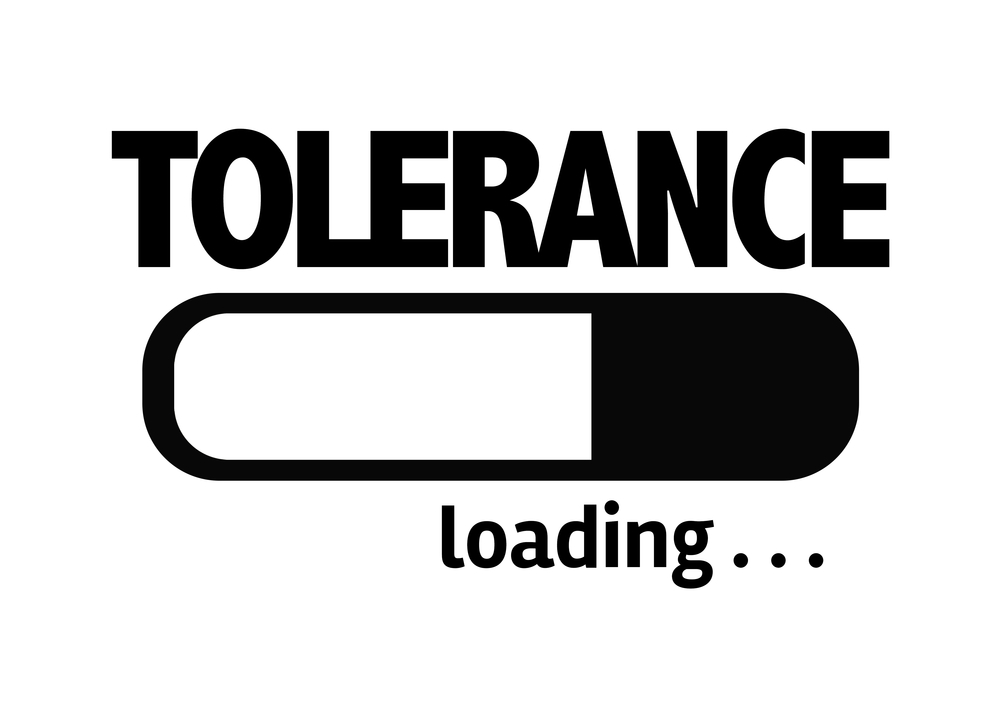This article/post contains references to products or services from one or more of our advertisers or partners. We may receive compensation when you click on links to those products or services
When you’re looking to invest in stocks, you will likely come across the term “public company”. For many companies, it is a major milestone that cements their success — we need only point to Facebook’s record-breaking $16 billion IPO back in 2012 as a major turning point in American financial history.
But what does a company “going public” actually mean for investors? And, by extension, what is a “private” company? As an investor, it’s important to know what makes a company public and the differences between public and private companies. Here’s what you should know about buying stock in private vs. public companies.
The Short Version:
- Public companies offer company shares to the general public via the stock market.
- Private companies reserve investment opportunities to venture capitalists, private equity firms, and crowdfunding.
- Public companies must adhere to strict SEC regulations and are tied to market indexes.
- Private companies’ regulations are not as strict and are not directly tied to market indexes.
- Individuals looking to invest in a private or public company should consider their risk tolerance, investment earnings timeline, and access to capital before deciding on whether to invest in a public or private company.
What Is a Public Company?
A public company is an enterprise that offers shares, or partial ownership of the company, through the stock market as a way to raise funds. Shareholders are permitted access to a portion of the company’s earnings, called dividends, each quarter. A company goes public during its Initial Public Offering (IPO), a financial review of a company completed by regulators, lawyers, and financial institutions to ensure that the company meets federal regulatory standards. During this IPO process, the public can start purchasing shares of stock with a company.
The Security and Exchange Commission (SEC) oversees the IPO process and requires quarterly financial disclosures from public companies. The SEC’s mission is to supervise securities laws to protect investors, grant companies and entrepreneurs a way to access capital markets, and regulate capital markets to make them operative and equitable for all participants.
The physical or electronic locations where stocks are bought and sold are called stock exchanges. The New York Stock Exchange (NYSE), for example, is a physical location, while the NASDAQ Stock Market is an electronic platform.
Each exchange has a unique set of requirements for a company to gain and maintain a spot on that exchange. If the company fails to meet the minimum requirements of the exchange, they are removed from the platform, but still may be traded over the counter.
Why Would a Company Go Public?
Companies choose to go public for a variety of reasons.
Going public allows a company to raise more funds for its business than if it were to stay private. These funds can help drive initiatives that wouldn’t be possible otherwise. In addition, if a company needs more readily available cash, it can issue more shares, making public companies more liquid than private ones.
Companies that go public often get additional media attention, helping them garner new business. And lastly, public companies tend to have a larger standing in the business world than private companies. This standing, achieved through meeting the stringent guidelines set forth by the SEC, may help public businesses receive better lending terms for loans.
Why Invest in a Public Company?
Companies who do choose to go public must jump through additional hurdles. Public companies are legally obligated to report their finances each quarter and provide an annual financial report. This report provides additional reassurance to investors that the company is operating profitability and judiciously.
Related>>How to Read a Financial Statement
Companies also, for the most part, can’t simply decide to go public no matter what size they are. Usually, companies need over $10 million before they can be approved on the majority of U.S. stock exchanges. This financial hurdle proves to investors that the company is somewhat profitable and, at the minimum, not an exceptionally risky investment.
Anybody is eligible to purchase a share of stock, unlike private companies that limit investment access to venture capitalists, private equity firms, or crowdfunding.
How to Invest in a Public Company
There are many ways to invest in a public company. You can invest in a public company by purchasing shares of stock on an exchange, either during the IPO or later.
Investing During the IPO
Investing during an IPO can be risky for a number of reasons. First, there is often a lot of hype surrounding an IPO, which can lead to unrealistic expectations about the company’s stock price. Second, the shares of a newly public company are often very volatile, meaning that their prices can go up or down sharply in a short period of time. Finally, there is often a limited amount of information available about a company before it goes public, which makes it difficult to make an informed investment decision.
ETFs
A less risky way to invest in IPOs is through diversification with exchange traded funds (ETF). For example, The Renaissance IPO ETF (IPO) and the First Trust U.S. Equity Opportunities ETF (FPX) enable investors to diversify their investments into hundreds of public companies. Since inception, Renaissance has seen a return of 14.45% and First Trust has seen a return of 10.46%.
Using an Online Brokerage Account
You can invest in established stocks in a variety of ways. Opening an online brokerage account at financial institutions like Marcus Invest by Goldman Sachs, TD Ameritrade, or Vanguard Personal Advisor Services®, is a good option for those with a decent grasp of investing.
A financial advisor can also help build an investment portfolio, depending on your financial objectives. Robo-advisors, virtual platforms that assist with investing, are less expensive alternatives to financial advisors, but they can’t provide the same level of guidance as a human professional.
Vanguard Disclosure – Vanguard Personal Advisor Services are provided by Vanguard Advisers, Inc., a registered investment advisor, or by Vanguard National Trust Company, a federally chartered, limited purpose trust company.
The services provided to clients who elect to receive ongoing advice will vary based upon the amount of assets in a portfolio. Please review the Form CRS and Vanguard Personal Advisor Services Brochure for important details about the service, including its asset based service levels and fee breakpoints.
VAI is a subsidiary of VGI and an affiliate of VMC. Neither VAI nor its affiliates guarantee profits or protection from losses.
What Is a Private Company?
A private company is a company owned by its founders and private investors. Private companies don’t undergo the same SEC regulatory process, although they may still issue shares of stock to their investors, depending on how the company is organized. Instead of undergoing an IPO, private companies raise funds through venture capitalists and private equity firms. These venture capitalists put money into a startup with hopes of realizing large gains from the company in the future.
Private companies are not legally required to provide their financial information to the public, although the private companies’ venture capitalist investors will most likely require some sort of financial disclosure to ensure their investment is a wise one.
Why Would a Company Stay Private?
A company may want to remain private or go from public to private for a variety of reasons.
All companies are accountable to their investors. Private companies typically have a smaller number of investors than public companies. Usually, those investors are intimately involved with the company already.
Remaining a private entity enables management and investors to have more control over the future decisions in the enterprise and focus their efforts on growing their business, instead of pleasing shareholders.
In addition, the number of regulations implemented by the SEC are increasingly more stringent. Adhering to regulations can be a distraction that some company owners may not want to deal with when trying to grow their company.
Can Public Companies Go Private?
Private equity is growing in popularity compared to IPOs. For example, in 2018, companies in the biotech and tech industries received a combined $130.9 billion from private equity investing, versus $50.3 billion from IPOs. Elon Musk also recently made news by announcing his plans to buy Twitter and take the company private (he’s now trying to back out of the deal and is facing a legal battle with Twitter’s board).
Publicly operated companies that wish to go private can delist their shares from the stock market in a few ways. The most common is by purchasing back shares. Once a company owns most of its shares and relatively few general public investors remain, it can vote to delist the rest of the shares.
If you’re a shareholder of a company that chooses to delist, you should receive a total payout of the number of shares you own at the current price of those shares. For example, if you owned 100 shares valued at $100 a share, you’d receive $10,000 in the account you hold with your broker from the delisting company.
Why Invest in Private Companies?
Generally, private equity outperforms the stock market, leading to a higher rate of return over the long term for private investors. These higher returns make sense, considering private investing is riskier than purchasing shares from the stock market. During volatile economic times, investors willing to remain patient can potentially see more long-term growth with their investments in private companies than in public ones.
Especially today, given the increasingly uncertain market conditions influenced by inflation, the war in Ukraine, and other negative international relations, some private company investors take it one step further by purchasing companies directly. In fact, 17% ($179 billion) of private funding in 2021 went towards directly investing in companies, while just five years ago in 2017 it was $93 billion.
How to Invest in a Private Company
Private investors are typically limited to venture capitalists and other individuals with ample funds to invest. Still, if your cash reserves are limited, you can invest in a private company through a process called crowdfunding.
With crowdfunding, you can combine your money with other investors to accumulate a return that otherwise might have only been possible if you had huge sums of money to invest on your own. CrowdStreet is one example of a crowdfunding platform you can use to invest. However, it’s important to pay attention to the fees required to invest, how long it will take to realize an ROI, and when your dividends are paid.
Read our review of CrowdStreet for 2022.
Public or Private—Which Is Better or Your Investment Dollars?
Choosing to invest in a private or public company ultimately depends on your risk tolerance, investing timeline, and access to the market.
Risk Tolerance
Generally speaking, a public company’s need to comply with SEC requirements and its quarterly filings make it more transparent to its shareholders, and therefore a less risky investment in the short-term. Conversely, it’s much easier to hide potential financial issues from shareholders if a company remains private.
That said, a public company’s stock price’s success is tied to the index in the stock market. An index is a benchmark for how well a particular sector is performing. With the annual inflation rate currently at 8.7% in the U.S., the largest increase in U.S. inflation in approximately 30 years, and the current global economic uncertainty, it’s tough to argue the actual stability of public companies.
In terms of private companies, it’s probably less risky to invest in a company that has been around for quite some time, as opposed to one that is starting out and its profitability is yet to be discovered. However, the private company’s sector, owners, and business plan will all factor into an investor’s determination of potential success.
Learn more>>Investment Risk 101
Investment Results Timeline
Sometimes, due to their need to report their finances to the public each quarter, public companies will focus on realizing profits in the short-term at the expense of a long-term business development strategy. This could be good for investors seeking quick investment returns, but investors willing to stick it out for the long-haul might see overall larger returns with a private company.
Access to the Market
Public companies are much easier to access for the average investor than private companies. If you don’t have a large sum of money to invest in a private company or lack a crowdfunding option to get in on the game, then your ability to invest in a private company will likely be limited.
Bottom Line
As you’ve read above, there are a few significant differences in choosing to invest in a private company or a public company, particularly when it comes to accessibility to shares, risk, and expected returns over a given period of time.
Generally, public companies are easier to invest in and have a longer history of performance. Private companies, on the other hand, outperform the market but carry more risk. However, both are riskier than investing in a diversified fund like an ETF.
Ultimately, the choice to invest in a company, public or private, is one that you shouldn’t take lightly. In order to make the best decision for you and your future financial success, you should thoroughly research the companies you’re considering and seek out the advice of a financial professional.
More on stock investing>>
















